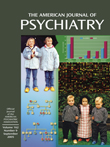Intravenous Quetiapine Abuse
Ms. A was a 34-year-old woman with a history of polysubstance dependence (alcohol, cannabis, and cocaine), depressive episodes associated with multiple suicide attempts, and borderline personality disorder who was incarcerated after conviction on charges of physical assault and possession of controlled substances. She had a history of incarceration on multiple occasions for similar charges. She complained of difficulty sleeping, poor impulse control, irritability, and depressed mood. For these symptoms, she was given oral quetiapine, 600 mg at bedtime. On one occasion, she took the pills provided to her but did not ingest them. Instead, she crushed the two 300-mg tablets, dissolved them in water, boiled them, drew the solution through a cotton swab, and while lying in bed, covered by blankets, intravenously injected the solution.Twelve hours later, she was awoken by facility guards who found the syringe she used still in place on her arm. She informed the guards that she had intravenously injected herself with quetiapine the previous evening and became rapidly sedated, falling asleep before she could remove the syringe. She additionally admitted to previous intranasal abuse of crushed quetiapine tablets. Apart from “the best sleep I ever had,” she described no dysphoric, euphoric, or other effects.
References
Information & Authors
Information
Published In
History
Authors
Metrics & Citations
Metrics
Citations
Export Citations
If you have the appropriate software installed, you can download article citation data to the citation manager of your choice. Simply select your manager software from the list below and click Download.
For more information or tips please see 'Downloading to a citation manager' in the Help menu.
View Options
View options
PDF/EPUB
View PDF/EPUBLogin options
Already a subscriber? Access your subscription through your login credentials or your institution for full access to this article.
Personal login Institutional Login Open Athens loginNot a subscriber?
PsychiatryOnline subscription options offer access to the DSM-5-TR® library, books, journals, CME, and patient resources. This all-in-one virtual library provides psychiatrists and mental health professionals with key resources for diagnosis, treatment, research, and professional development.
Need more help? PsychiatryOnline Customer Service may be reached by emailing [email protected] or by calling 800-368-5777 (in the U.S.) or 703-907-7322 (outside the U.S.).

